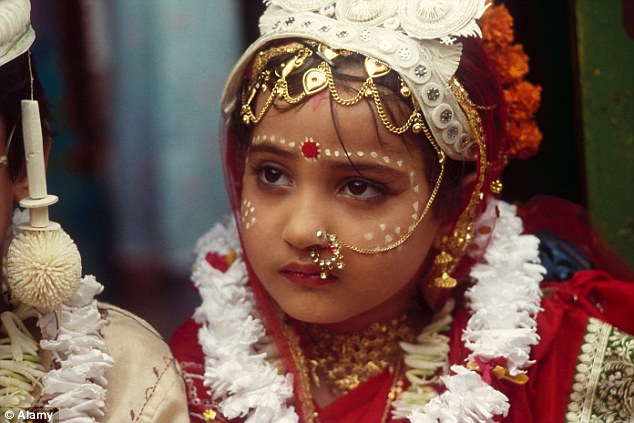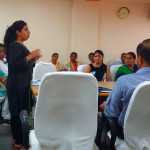Domestic violence continues to be one of the most widespread and pervasive issues that Indian women are facing. Although this violation of women and girls’ rights is a global phenomenon, India has a particularity – its number of child brides.


India doesn’t have the highest incidence of child marriage in the world, but it has the highest number of child brides. It’s daunting to think that 47% of Indian girls (between the ages of 20 and 24) were married before the age of 18. In a country with 1.2 billion citizens, that percentage represents millions of child brides. Those numbers start to matter even more when it has been studied that girls who marry before 18 are more likely to experience domestic violence than their peers who marry later. A study from the International Center for Research on Women has found that in ‘Bihar and Jharkhand, girls who were married before 18 were twice as likely to report being beaten, slapped or threatened by their husbands than girls who married later. Girls who marry early were also ‘three times as likely to report being forced to have sex without their consent in the previous six months’. Therefore, ‘child brides,’ unsurprisingly are ‘more likely to believe that a man is sometimes justified in beating his wife than women who marry later’, and have ‘low bargaining power in the household and are more likely to experience violence by an intimate partner,’ which are often much older than they are.
Therefore, the situation is especially dire for these girls who have even less tools to fight with, and are in a position of higher vulnerability. Add blatant sexist and patriarchal attitudes, poverty, low education levels for girls, a reverent attitude towards marriage, and the conviction that a wife’s duty is to serve her husband as her God, and India has an explosive combination for rampant domestic violence. However, even though the Indian context may have aggravating factors; the cycle of violence, the ‘honey moon periods’, the fear, shame and guilt, and the hopelessness victims of domestic violence feel remain the same across borders.
Victims of domestic violence live in fear for their lives, and those of their children’s. They fear their partner who is supposed to protect them, in whom they trust, and with whom they are supposed to share their lives. But these partners aren’t partners at all, they’re perpetrators of violence, and they have laid out an entire strategy to heighten these women’s vulnerability, to keep them under their power and prevent them from being free – by any means possible. Moreover, in India the violence and humiliation are inflicted by not only husbands, but by in-laws and their communities’ as well. This context makes it particularly hard for victims to escape when the climate and everyone around them is so unsupportive.
For child brides in India these patterns of domestic violence are stronger, especially since wives are often isolated from their families and loved ones. They live with their husband’s family who have control of their finances, assets, and use the created dependence to disempower them to leave. Also, they are much younger, they are children or teenagers, which makes them that much more vulnerable. What chance does a 13 year old have against a 40-year-old husband and in-laws who chose her as their son’s wife in the first place?
Perpetrators -and this includes partners and family members- persuade their victims that they are worthless without them. They limit their mobility and options, access to information and willpower by crushing their self-esteem. It is also observed that the perpetrators guarantee their impunity by shifting the blame on their victims, by repeatedly humiliating, degrading and belittling them, and manipulating them into thinking they deserve the abuse. Perpetrators of violence twist words and meaning. They will use the sexist climate to justify their actions and guarantee an atmosphere of fear and guilt: fear of stigma and divorce, a wife’s duty to obey her husband and so on. Wives who do not cook meals on time and when desired are dishonoring the family, they bring shame by expressing their opinion, and should therefore be put back within their limits. These women feel ashamed, guilty, confused, alone and helpless.
This scheme is particularly heightened and strong in child marriages, and within a context where wives live to serve their husband and his family. These young girls are shaped by their communities and their marriage, and their husbands’ attitudes. These girls are in even more vulnerable positions since they are shaped from a young age in accepting violence from their partners and often their in-laws. These girls grow up to be women, who have access to less resources and have accumulated years of violence and abuse from their partners-internalizing painful messages, and wounds.
Fear is a powerful emotion, silencing and petrifying- especially when coupled with a black eye, and the feeling you deserved it after all. The fear is that much stronger in a child who was forced to marry.
Written By: Nikita A. Blanes
Donation for Centre for Social Research to Join our effort in rehabilitating Domestic Violence
Discuss this article on Facebook




